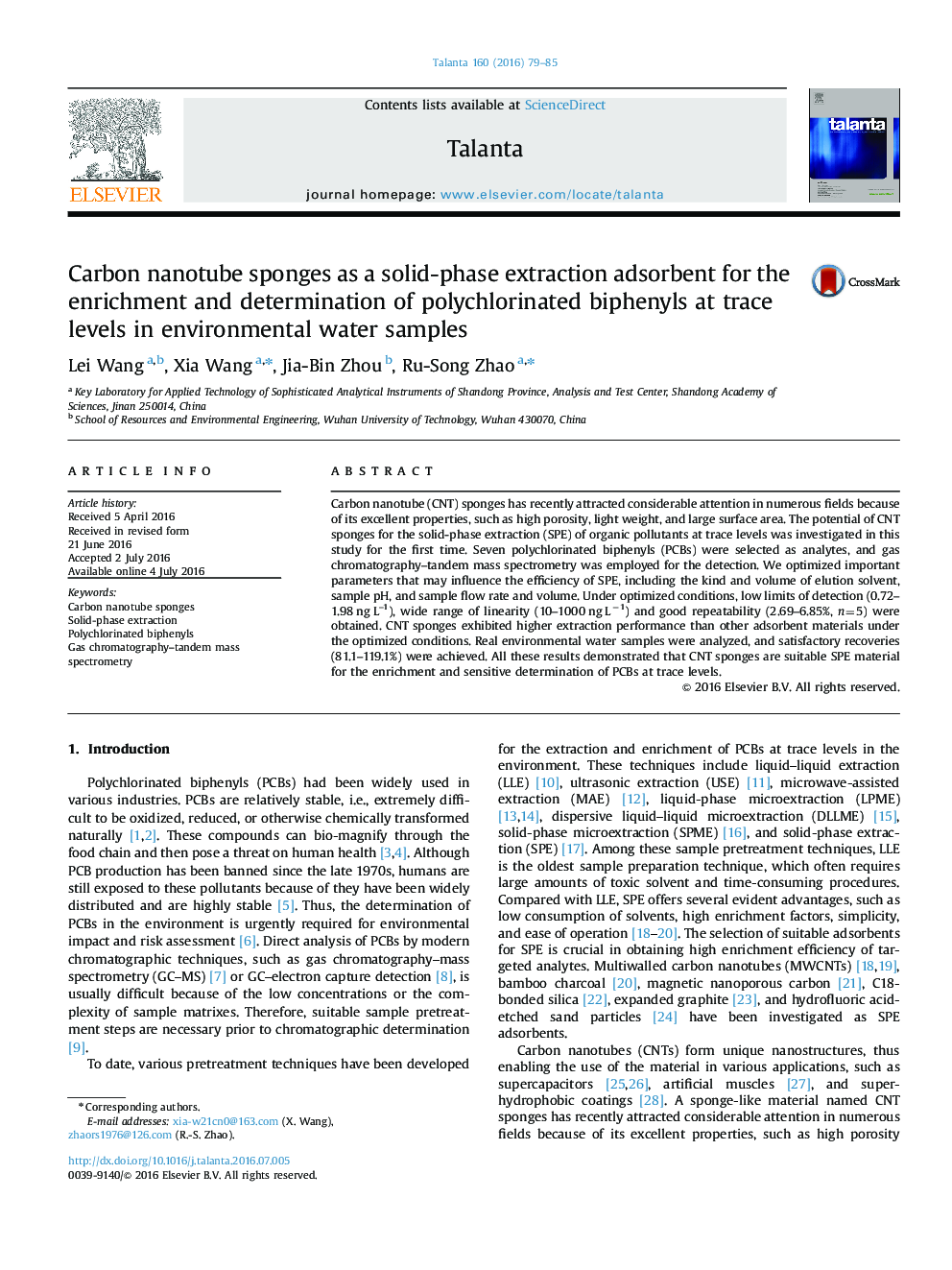| Article ID | Journal | Published Year | Pages | File Type |
|---|---|---|---|---|
| 1243234 | Talanta | 2016 | 7 Pages |
•Investigate the feasibility of CNT sponges as a novel SPE adsorbent for PCBs.•It exhibited higher extraction performance and lower LODs than other adsorbents.•Establish a SPE method for the enrichment and analysis of PCBs at trace levels.•This study widened the application range of CNT sponges.
Carbon nanotube (CNT) sponges has recently attracted considerable attention in numerous fields because of its excellent properties, such as high porosity, light weight, and large surface area. The potential of CNT sponges for the solid-phase extraction (SPE) of organic pollutants at trace levels was investigated in this study for the first time. Seven polychlorinated biphenyls (PCBs) were selected as analytes, and gas chromatography–tandem mass spectrometry was employed for the detection. We optimized important parameters that may influence the efficiency of SPE, including the kind and volume of elution solvent, sample pH, and sample flow rate and volume. Under optimized conditions, low limits of detection (0.72–1.98 ng L–1), wide range of linearity (10–1000 ng L−1) and good repeatability (2.69–6.85%, n=5) were obtained. CNT sponges exhibited higher extraction performance than other adsorbent materials under the optimized conditions. Real environmental water samples were analyzed, and satisfactory recoveries (81.1–119.1%) were achieved. All these results demonstrated that CNT sponges are suitable SPE material for the enrichment and sensitive determination of PCBs at trace levels.
Graphical abstractFigure optionsDownload full-size imageDownload as PowerPoint slide
